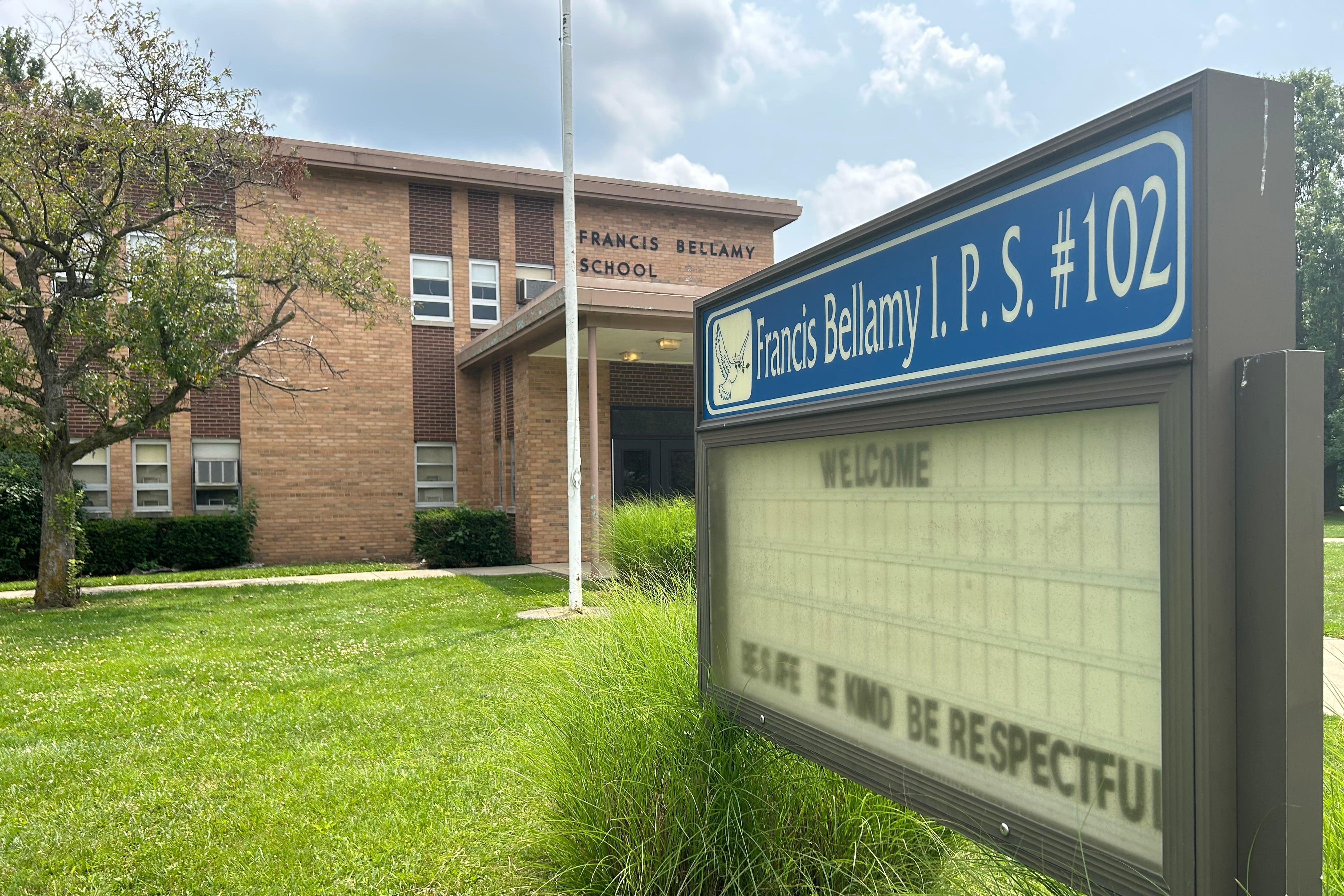Sign up for Chalkbeat Indiana’s free daily newsletter to keep up with Indianapolis Public Schools, Marion County’s township districts, and statewide education news.
Indianapolis Public Schools board voted to move ahead with the sale of Francis Bellamy School 102 while the legal battle over whether the district must offer it to charter schools for $1 continues in court.
But within a day, that sale was put on hold.
The school board voted 6-0 Thursday to authorize the sale of the school on the far eastside to VOICES, a local nonprofit that works with youth, for $550,000. One commissioner was absent.
The vote came three days after Marion County Judge Heather Welch granted the district an exemption from a state law that requires districts to offer closed school buildings to charter schools for $1. For some time, that law has caused tension between IPS and some in the charter sector, as IPS has closed schools while charter school enrollment has grown.
On Friday, Welch granted an emergency motion requested by Attorney General Todd Rokita to stay her ruling and stop the sale while Rokita appeals the decision.
In a statement, the school board said it is seeking clarity on the meaning of the stay.
“We will continue to advocate for our facilities to be repurposed in ways to meet the needs of our community, as is the case for our agreement with VOICES Corp.,” the board said.
Before the school board vote Thursday, a crowd of parents, students, and others urged the school board to work collaboratively with charter schools under the “Better Together” campaign. The campaign includes groups supportive of education reform, such as EmpowerEd Families.
IPS objected to Rokita’s attempt to stop the sale in a court filing on Thursday, arguing that doing so would harm IPS and taxpayers.
The district indicated that there’s no real downside to selling the school while the legal battle plays out, as far as IPS is concerned. If an appeals court ultimately finds the district in violation of the $1 law, state law would require the proceeds of the sale to go to nearby charter schools, the district noted in its filing.
The state has not provided any evidence that a charter school actually wants to acquire either School 102 or Raymond Brandes School 65 — another closed school the district wants to sell — IPS also said in its filing.
However, last year several charter schools expressed interest in taking over schools that IPS planned to close.
Amelia Pak-Harvey covers Indianapolis and Lawrence Township schools for Chalkbeat Indiana. Contact Amelia at apak-harvey@chalkbeat.org.





